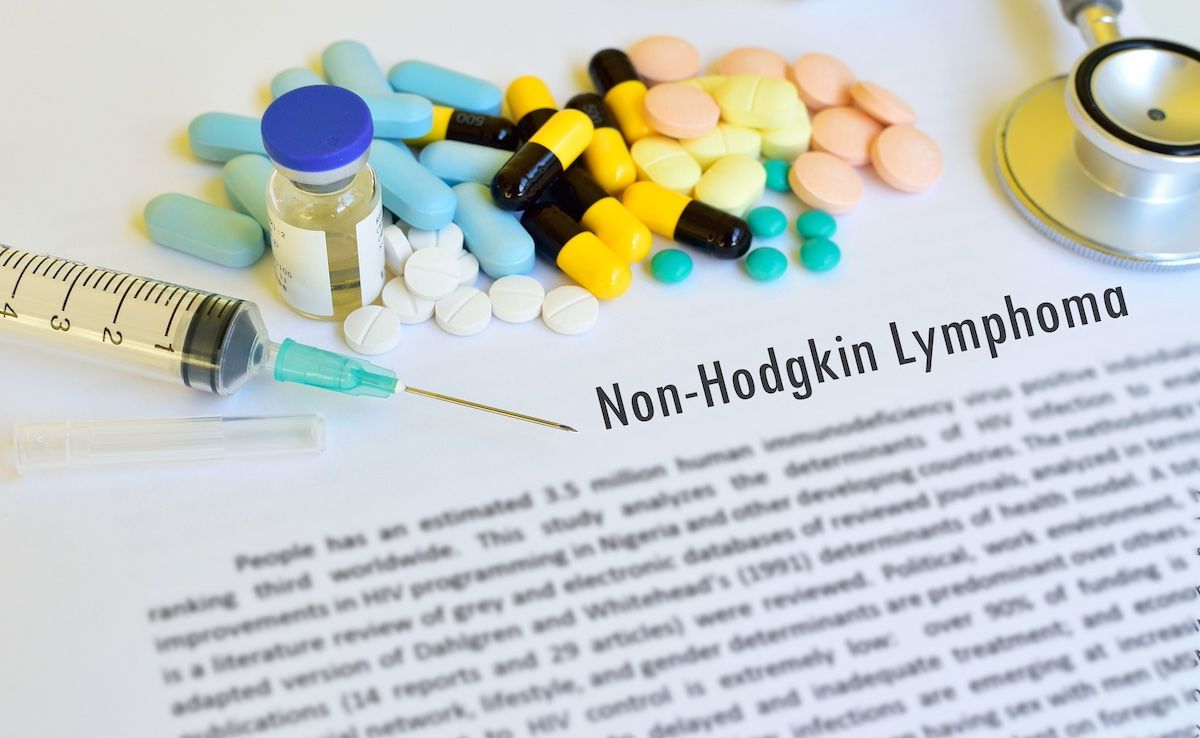- Center on Health Equity & Access
- Clinical
- Health Care Cost
- Health Care Delivery
- Insurance
- Policy
- Technology
- Value-Based Care
Early Relapse After CAR T-Cell Therapy Linked With Poor BsAb Outcomes in LBCL
Elevated LDH and higher international prognostic index were also predictors of poor outcomes on bispecific antibodies, investigators found.
Patients with large B-cell lymphoma (LBCL) who relapse soon after CD19-directed chimeric antigen receptor (CAR) T-cell therapy are particularly unlikely to respond to bispecific antibody therapy, a new report in Blood Advances found.1
Though CAR T-cell therapies have made a major impact on patients with relapsed or refractory LBCL, the majority of patients do not achieve a complete response, and relapse following CAR-T therapy remains a major problem.2 When patients relapse after CAR T-cell therapy, their prognosis is poor.
The data suggest BsAbs are safe and effective in many patients with relapsed or refractory LBCL following CAR T-cell therapy. | Image credit: jarun011 - stock.adobe.com

In the new report, corresponding author Georg Lenz, MD, of the University Hospital of Muenster, Germany, and colleagues explained that one treatment option for patients who relapse after CAR T-cell therapy is bispecific antibody (BsAb) immunotherapy.1 However, both BsAb and CAR T-cell therapy depend on functional T cells to work. They noted that patients who have taken lymphotoxic therapies like bendamustine tend to achieve worse results with CAR T-cell therapy and BsAb therapy, though an extended interval between bendamustine and T-cell–dependent therapies can improve efficacy.
Lenz and colleagues hypothesized that there might be significant overlap between LBCL-intrinsic resistance mechanisms to CAR T-cell and BsAb therapy. They also suspected that poor prognosis indicators might overlap between the 2 therapies.
They retrospectively analyzed a cohort of patients from Germany, Switzerland, and Austria, who were treated with BsAbs for relapsed or refractory LBCL following CAR-T therapy. A total of 92 patients from 24 study sites were identified. The patients received therapy between September 2020 and July 2024.
In the cohort as a whole, they found the overall response rate (ORR) to BsAb therapy was 43%, while progression-free survival was 2.8 months. However, they found that responses varied significantly based upon the timing of the patient’s CAR T failure.
Patients who relapsed in 3 months after their CAR T infusion had an ORR of just 29% and a PFS of just 2.2 months when given BsAb therapy. Those who relapsed more than 6 months after CAR T-cell therapy had an ORR of 60% and a PFS of 10.5 months. Those with “intermediate” relapses (4 to 6 months after therapy) had an ORR of 54% and a PFS of 3.7 months.
The investigators said the response rates overall with BsAbs were “encouraging.”
“Importantly, we revealed that the time from CAR T-cell infusion significantly predicts efficacy and durability of response of BsAb therapy, which is in line with results of any other salvage therapy in CAR T-cell failure suggesting a lymphoma-intrinsic resistance,” Lenz and colleagues wrote.
They noted that patients who received other therapies in between CAR-T and BsAb therapy tended to have inferior results. Among patients in the late-relapse cohort, those who received BsAb as their first salvage therapy did not reach PFS or overall survival, while those who received BsAb in subsequent lines had a PFS of 2.7 months and an OS of 9.1 months.
The authors further found that patients with elevated LDH and higher international prognostic index scores had poorer outcomes on BsAb therapy.
“In line with all published data post CAR T-cell therapy, our data highlights the inferior outcomes for patients relapsing early post-CAR-T across all drug classes (e.g., ADC [antibody-drug conjugates], anti-CD19 monoclonal antibodies, bispecific antibodies, amongst others),” the investigators wrote.
Lenz and colleagues noted that while their data line up with previous research, the subgroups in their dataset were small, and some caution is warranted in interpreting the results. Even with that limitation, they said their data suggest BsAbs are safe and effective in many patients with relapsed or refractory LBCL following CAR T.
“However, efficacy of BsAb is significantly impaired in patients with refractory disease or early relapse following CAR T-cell therapy, underscoring the necessity of novel therapeutic approaches in these patients,” they concluded.
References
1. Shumilov E, Scholz JK, Seib M, et al. Outcomes of bispecific antibody therapy after CAR T-cell failure in relapsed/refractory large B-cell lymphoma. Blood Adv. Published online April 16, 2025. doi:10.1182/bloodadvances.2024015719
2. Iacoboni G, Villacampa G, Martinez-Cibrian N, et al. Real-world evidence of tisagenlecleucel for the treatment of relapsed or refractory large B-cell lymphoma. Cancer Med. 2021;10(10):3214-3223. doi:10.1002/cam4.3881
